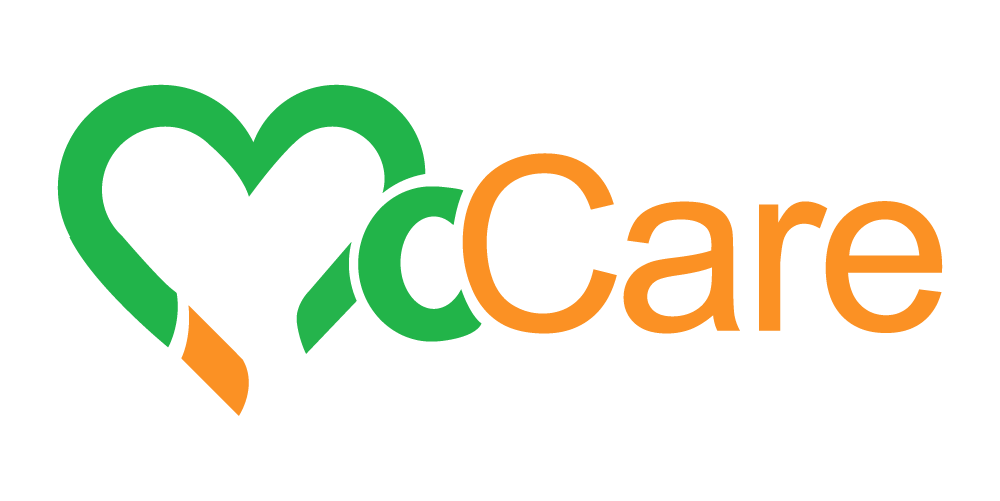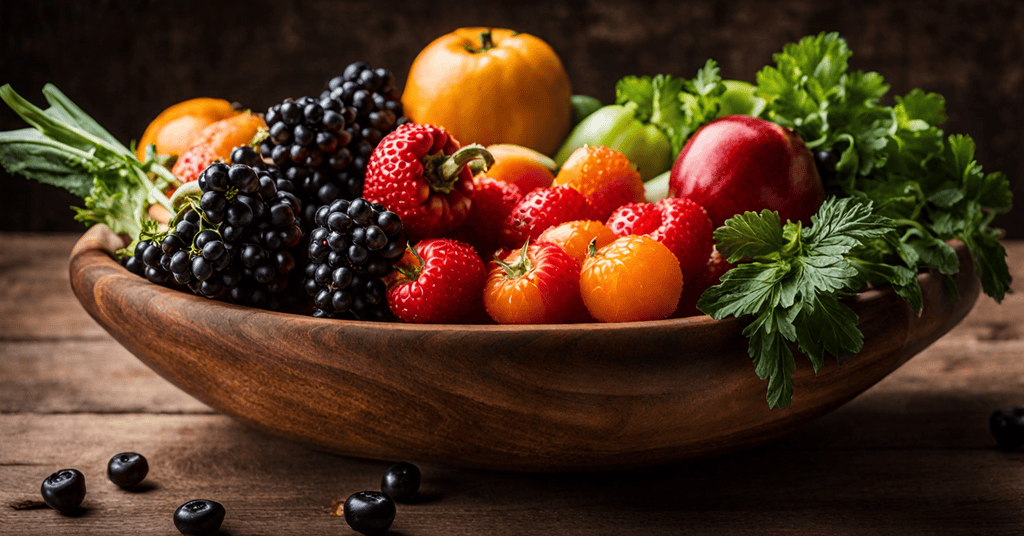Understanding Dietary Fiber: Key to a Healthy Digestive System
9 Dietary Fiber Benefits – Key to a Healthy Digestive System
Hey there, health enthusiasts and curious minds! Have you ever wondered about the unsung hero in your diet? The one that keeps your digestive system humming along smoothly? Well, it’s none other than dietary fiber! In this article, we’re going to dive deep into the world of dietary fiber, unravel its mysteries, and discover the incredible benefits it brings to the table. So, grab a seat and get ready to digest some essential information about dietary fiber – the key to a healthy digestive system!
What is Dietary Fiber?
Before we jump into the marvelous benefits of dietary fiber, let’s get to know our star a little better. So, what exactly is dietary fiber?
Dietary fiber, also known as roughage, is a type of carbohydrate found in plant-based foods. It’s the part of the food that your body can’t digest or absorb. Instead, it passes through your digestive system relatively intact, while working its magic along the way.
Dietary fiber is a type of carbohydrate that is found in plant foods, such as fruits, vegetables, grains, and legumes. Unlike other carbohydrates, dietary fiber cannot be digested or absorbed by the human body, so it passes through the digestive tract mostly intact.
There are two primary types of dietary fiber: soluble and insoluble.
- Soluble fiber dissolves in water and forms a gel-like substance in the stomach and intestines. This helps slow down the digestion and absorption of sugars and fats, which can lower blood cholesterol and glucose levels. Soluble fiber also helps feed the beneficial bacteria in the gut, which can improve the immune system and prevent infections. Some examples of foods that contain soluble fiber are oats, barley, beans, lentils, apples, pears, citrus fruits, and psyllium.
- Insoluble fiber does not dissolve in water and adds bulk to the stool. This helps speed up the transit of waste through the colon, which can prevent constipation and diverticular disease. Insoluble fiber also helps prevent the accumulation of toxins and carcinogens in the colon, which can reduce the risk of colon cancer. Some examples of foods that contain insoluble fiber are wheat bran, whole wheat, brown rice, nuts, seeds, carrots, celery, and green leafy vegetables.
The recommended daily intake of dietary fiber for adults is 25 to 38 grams, depending on age and gender. However, most people only consume about half of that amount. Therefore, it is important to eat a variety of fiber-rich foods every day, and supplement with a fiber product like Enerfiber if needed. Dietary fiber can provide many benefits for your digestion and overall health, so make sure you get enough of it in your diet.
Now, let’s break down the two primary types of dietary fiber:
The Ultimate List of Fiber-Rich Foods for Better Health
Soluble Fiber
Soluble fiber dissolves in water and forms a gel-like substance in your gut. This type of fiber is often found in foods like:
- Oats
- Beans
- Apples
- Citrus fruits
- Carrots
Soluble fiber can help lower your cholesterol levels, stabilize blood sugar, and keep your gut healthy.
Insoluble Fiber
On the flip side, we have insoluble fiber, which doesn’t dissolve in water. It adds bulk to your stool, promoting regular bowel movements and preventing constipation. Foods rich in insoluble fiber include:
- Whole wheat
- Nuts and seeds
- Cauliflower
- Green leafy vegetables
- The skin of fruits
Both types of dietary fiber play a crucial role in maintaining a healthy digestive system, but their functions differ slightly.
Dietary Fiber Benefits
Ah, the moment you’ve been waiting for – the incredible benefits of dietary fiber. Let’s explore how this unsung hero contributes to your overall well-being.
1. Smooth Digestion
Remember the days when you felt bloated and sluggish? Dietary fiber can be your secret weapon against such discomfort! It keeps things moving in your digestive tract, preventing constipation and promoting regular, smooth bowel movements.
2. Weight Management
Who doesn’t want to maintain a healthy weight? Dietary fiber can help you with that! High-fiber foods make you feel full for longer, curbing your appetite and reducing overall calorie intake. Plus, they’re generally lower in calories, which is a win-win for weight management.
3. Heart Health
Soluble fiber is like a guardian angel for your heart. It helps lower your cholesterol levels by binding to cholesterol particles in the digestive system and escorting them out of your body. A heart-healthy diet often includes plenty of fiber-rich foods.
4. Blood Sugar Control
If you’re concerned about blood sugar spikes, dietary fiber is your ally. Soluble fiber slows down the absorption of sugar, helping to regulate blood sugar levels. This is particularly important for people with diabetes or those at risk of developing it.
5. Gut Health
Your gut is a bustling city of microorganisms, and they need to be kept happy. Dietary fiber acts as a prebiotic, providing nourishment to the beneficial bacteria in your gut. A healthy gut microbiome is associated with improved digestion and a stronger immune system.
6. Reduced Risk of Colon Cancer
Insoluble fiber is like a shield for your colon. It speeds up the transit of waste through your digestive system, reducing the time any harmful substances spend in contact with your colon. This, in turn, lowers the risk of colon cancer.
7. Diverticulitis Prevention
Diverticulitis, inflammation of small pouches in the colon, can be painful. Insoluble fiber prevents this condition by keeping the stool soft and reducing pressure on the colon walls.
8. Skin Glow
Your skin reflects your internal health. When your digestive system is in good shape, it shows on your skin. A healthy diet rich in dietary fiber can contribute to a radiant complexion.
9. Longevity
Studies have shown that a high-fiber diet is associated with a longer lifespan. The benefits of dietary fiber are not just about living longer but also living healthier in your later years.
FAQs: Your Burning Fiber Questions, Answered!
Can I get enough fiber from supplements?
While fiber supplements can be a convenient way to increase your fiber intake, such as Enerfiber, it’s best to get your daily dose from whole foods. A well-balanced diet that includes fruits, vegetables, whole grains, and legumes will provide a wide range of nutrients and health benefits.
How much fiber should I aim for each day?
The general recommendation is around 25 grams of fiber for adult women and 38 grams for men. However, individual needs may vary, so it’s a good idea to consult with a healthcare professional or nutritionist to determine the right amount for you.
Are there any side effects of consuming too much fiber?
While fiber is incredibly beneficial, consuming excessive amounts can lead to digestive discomfort, such as gas, bloating, and diarrhea. It’s essential to find the right balance that works for your body.
Can I get enough fiber on a vegetarian or vegan diet?
Absolutely! Plant-based diets are typically rich in fiber. Legumes, whole grains, fruits, and vegetables are excellent sources of dietary fiber and are readily available in vegetarian and vegan diets.
Can children benefit from a high-fiber diet?
Yes, children can benefit from dietary fiber as well. It promotes healthy digestion and can help prevent constipation. Just ensure that their diet includes age-appropriate fiber-rich foods.
How can I incorporate more fiber into my diet?
You can easily increase your fiber intake by making small, gradual changes. Here are some tips:
1. Start your day with high-fiber cereals or oatmeal.
2. Snack on fresh fruits and veggies.
3. Choose whole grains like brown rice, quinoa, and whole wheat pasta.
4. Add legumes like lentils, beans, and chickpeas to your meals.
5. Consume the Enerfiber supplement, as it provides numerous health benefits and aids in maintaining a balanced diet and lifestyle.
Understanding dietary fiber is indeed the key to a healthy digestive system.
Understanding dietary fiber is indeed the key to a healthy digestive system. It’s like the secret sauce in the recipe of well-being. By incorporating fiber-rich foods into your diet, you’re not only promoting a smoother digestion but also enhancing your overall health.
So, remember to fill your plate with colorful fruits, vegetables, whole grains, and legumes. Your gut, heart, and entire body will thank you for it! And don’t forget, dietary fiber benefits are not just about physical health – they contribute to your mental and emotional well-being too. A happy gut equals a happy you!
In your journey to better health, dietary fiber is the co-pilot you never knew you had. Embrace it, enjoy it, and savor the delicious and nutritious path to a vibrant and fulfilling life.



